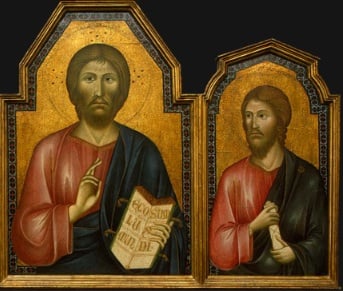This series is by my colleague in theology, Dr. Mary Veeneman, and she’s guiding us through a brand new book by Brad Harper and Paul Metzger. The book is called: Exploring Ecclesiology: An Evangelical and Ecumenical Introduction
. The question we need to ask, especially of evangelicals, is this: Does the church matter? And if so, how does it matter? Now over to Mary…
While taking my doctoral exams in graduate school, I had to answer a
method question which asked me to grapple with the question, “Earth:
Does it matter for theology?” During the previous school year, my
department had offered a course in ecological theology, which everyone
facing that exam question wisely took. A friend of mine in the
program, a Catholic priest, joked to the professor offering the course
that he did not need to take it, as he already recycled. In all
seriousness, though, I think everyone in the class agreed at the end
that course had given us valuable content.
At one point in the course, we discussed the work of Lynn White and his
argument that environmental degradation was largely attributable to
ideas coming out of Christianity. Inevitably, someone mentioned
evangelical Christians and the way in which an evangelical
understanding of dispensational premillennialism (though that term
wasn’t used) led to a lack of care for the environment. As Tom Sine
argues, “It doesn’t make much sense to be overly concerned for the
environment is going to burn anyway” (Harper and Metzger, 79).
Do you think the gospel has anything to do with creation? Is creation care redemptive in a meaningful sense?
I don’t remember exactly how I responded, though I somehow pointed out that not all evangelicals are premillennialists, that there are actually a number of evangelicals interested in environmental protection and moreover, that environmental protection was consistent with evangelical values. It is this topic that Brad Harper and Paul Louis Metzger seek to address in the chapter, “Eschatology, the Church, and Ecology in this book we are discussing here at Jesus Creed blog.
Perhaps one of the most interesting claims made by Harper and Metzger is one that is similar to that made by N.T. Wright in Surprised by Hope. They write, “The biblical vision of future salvation clearly contains a number of otherworldly images. But the kingdom of God is neither the hope for a future spiritual existence, nor the hope of an escape from this world to an entirely heavenly creation. Rather, it is the hope for a redeemed bodily existence in the present cosmos and on the present earth, renewed by having been released from its bondage to sin and the curse that corrupted it” (Harper and Metzger, 80).
Do you agree with Harper and Metzger?
Because Christianity has traditionally stressed an anthropocentric (human-centered) rendering of the fall, an anthropocentric rendering of salvation and re-creation has resulted. While the larger implications of the fall have not been wholly ignored by theologians, the emphasis has largely been on the relationships between human beings and God rather than the relationships between human beings and the environment.
Ultimately, Harper and Metzger argue, “the kingdom of God is about the redemption of not only the church, but also of the whole creation” (Harper and Metzger, 80). After giving some biblical examples to support their contention, they spell out the implications of their claim for the church.
If the redemption of all of creation is part of the ethos of the kingdom, and the church is the instrument of the kingdom, then the church must care about the environment. As believers do the work of healing the earth, creation can again do the work of praising God that it was originally meant to do. They write, “Human praise is completed when it is joined by the voice of the cosmos in exhaltation of the One who, as the hymn writer proclaims, is the ‘joy of the whole earth.’ Here the earth, once perfect, now broken, and one day to be glorious again, is brought together with the church in its own eschatological anticipation” (Harper and Metzger, 84).
The kingdom of God demands, they claim, that we not simply look at Genesis to understand the significance of nonhuman creation, but that we also look to the eschaton. It is only when we have the eschaton in view that we can fully understand the purpose of the nonhuman creation, and our own responsibilities to care for it.
What do you think? Do Harper and Metzger’s claims convince you?
They leave their readers with a closing question, which I think is an intriguing one to pose here. Martin Luther once said, “If I knew the world were to end tomorrow, I would plant a tree today.” What are we to make of this statement and how might it inform our conversation on this topic?

